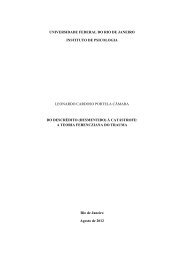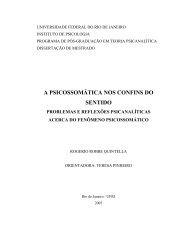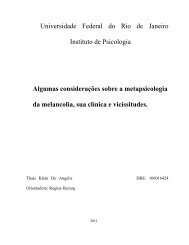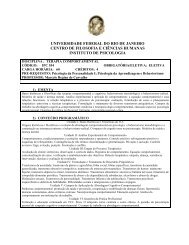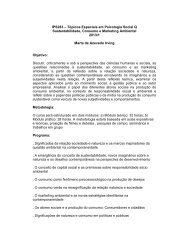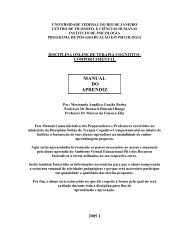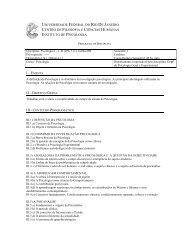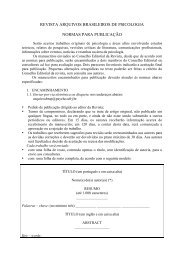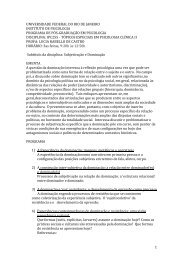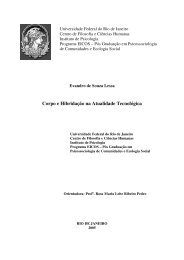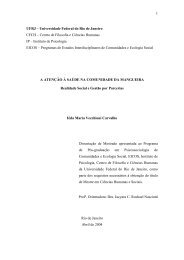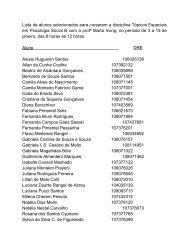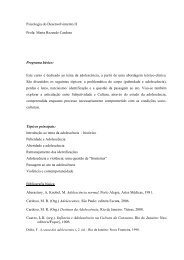Crise Ambiental e Modernidade - Instituto de Psicologia da UFRJ
Crise Ambiental e Modernidade - Instituto de Psicologia da UFRJ
Crise Ambiental e Modernidade - Instituto de Psicologia da UFRJ
You also want an ePaper? Increase the reach of your titles
YUMPU automatically turns print PDFs into web optimized ePapers that Google loves.
6<br />
Abstract<br />
Nowa<strong>da</strong>ys, the global environment crisis imposes chalenges to science and politics<br />
simultaneously. The politicians, used to humans subjects, find themselves obliged to<br />
inclu<strong>de</strong> the environment in their <strong>de</strong>cisions, while science moves from the labs to public<br />
<strong>de</strong>bates about impredictable objects and ambiguous issues, such as the global climatic heat.<br />
Both <strong>de</strong>mands done to science and politics come from a structural change in the civilizing<br />
process. This process was represented by mo<strong>de</strong>rnity as a man’s control over nature,<br />
consi<strong>de</strong>red a wild and exterior space. To<strong>da</strong>y, this scene is the oppositive: the preservation<br />
of the environment causes struggles among the men. This change of nature from an exterior<br />
place to the interior of society, as it presents itself as a distance from mo<strong>de</strong>rnity, is the<br />
subject of this work. Such process will be investigated un<strong>de</strong>r three points. At first, we try to<br />
un<strong>de</strong>rstand the emergence of the environment crisis from the engine of the mo<strong>de</strong>rnity<br />
itself. Therefore, the mo<strong>de</strong>rn features treated in the first chapter ⎯ nature exteriority, future<br />
previsibility and criticism ⎯ are taken back in the second chapter, as their consequent<br />
process. This move leads to socialization of nature, manufacturing of risks, and to extension<br />
of criticism, elements that insert the environment crisis in the present. Then, two<br />
antagonized ways of setings the environment problems are analysed. These two ways share<br />
the fact of not taking into account the fusion between nature and society: the <strong>de</strong>ep ecology<br />
and the mo<strong>de</strong>rnizing perspective. At last, the conceptual implications of the hybridization<br />
between nature and society on History, science and culture are studied.



